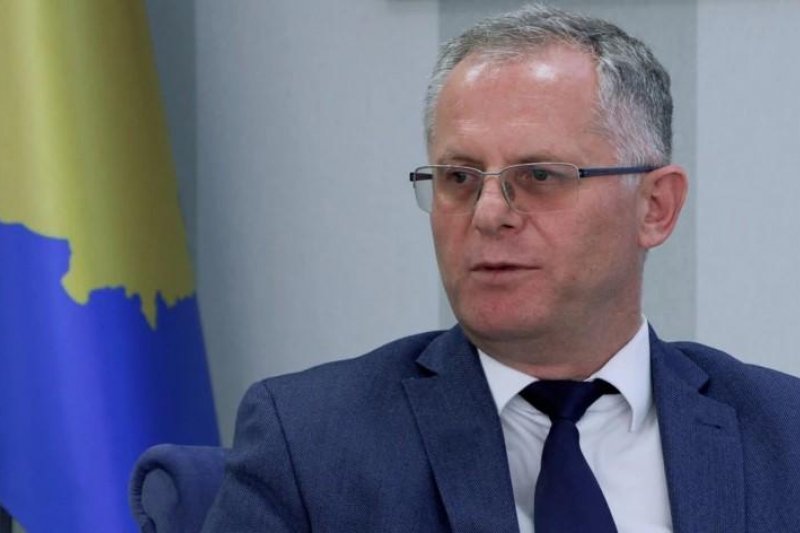Serbia Used License Plates Issue for Destabilization; Kosovo Deputy PM
The Deputy Prime Minister of Kosovo, Besnik Bislimi, said on Tuesday that the Serbian Government's decision to allow vehicles with Kosovo license plates, RKS, to move within its territory from January 1 is an indication that "all the destabilization" that Serbia has done regarding them over the years they have been "illogical and unnecessary".
"The license plate issue has been an unimplemented agreement for over 10 years and for 2 years the agreement was used as a means and goal for escalation and destabilization," Bislimi wrote on his official profile on the Facebook social network.
On December 25, the Government of Serbia announced that it made a decision to enable the free movement of all vehicles from Kosovo to the territory of Serbia from next month.
It is not clear whether the number plates of the cars will no longer be covered with stickers when they cross the border - as is currently the case.
For such a thing, Serbia agreed with the agreement of 2011, reached between the representatives of Kosovo and Serbia in the dialogue mediated by the European Union.
With the decision on the recognition of RKS license plates by Serbia, a long process of the issue of license plates and their non-recognition by the Serbian side comes to an end. In September 2021, Serbia used this issue to threaten Kosovo and fly MiGs around our border," said Bislimi.
Before the practice of stickers, vehicles with RKS license plates had to get trial license plates at the border with Serbia, which were valid for 60 days and cost five euros. But, on September 20, 2021, the Government of Kosovo decided on the measure of reciprocity, which forced drivers from Serbia to go through the same procedure to enter Kosovo.
However, this measure provoked dissatisfaction among the Serbian population in Kosovo, who blocked the roads leading to the border crossing points with Serbia, in Jarinje and Bërnjak.
"Unfortunately, 18 months had to pass with tensions and barricades on the part of Serbia, resistance and insistence at the technical level that the stickers are a permanent solution, as well as withdrawal from the institutions in November of last year, to come to the conclusion that is the same as the initial proposal of Kosovo", emphasized Bislimi.
To reduce tensions, with the mediation of the European Union, on September 30, 2021, the temporary agreement on license plates was reached.
This agreement, which was intended to be in effect for six months until the Kosovo and Serbia working groups find a long-term solution, led to drivers with both Kosovo and Serbian license plates affixing stickers to the state symbols on their license plates, every time they crossed the border of these two states.
Bislimi called the latest decision of the Serbian Government a disguise, saying that "we must emphasize and remind, that this is not constructive on the part of Serbia...they want to camouflage it after the failure in Banjska and the failure of their narrative fed for so many time in Brussels".
Belgrade's decision was welcomed by the European Union on Tuesday, which described it as a positive step towards the normalization of relations between Kosovo and Serbia.













